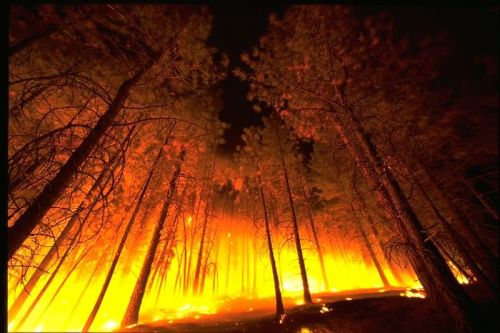B.C. takes action ahead of summer wildfire season
Backgrounders
Facts about wildfire season, available supports
- BC Wildfire Service (BCWS) has been actively monitoring and responding to more than 90 holdover fires from the end of the 2023 fire season, the majority in the Prince George Fire Centre.
- BCWS has been assigning resources to areas with identified hotspots from holdover wildfires since early spring.
- Only 12 areas of growth occurred on the more than 7,300 kilometres of holdover fire perimeter by the end of May 2024.
- In 2023, approximately 2.84 million hectares burned in wildfires in B.C. and more than 600 residential structures were destroyed or damaged.
- Emergency Support Services (ESS) is a provincial program delivered by local governments and First Nations to provide short-term basic support to people affected by disasters.
- ESS direct Interact e-transfer was introduced by the Province in 2022 to help people receive funds to cover their basic needs, including food and clothing. It is now being expanded to include accommodation costs.
- BC Emergency Alerts helped people get access to timely, potentially life-saving information when they needed it.
- In 2023, the Province issued 24 emergency alerts for wildfire evacuation orders on behalf of communities.
- Approximately 80% of people access emergency information from their mobile devices.
- Updates to EmergencyInfoBC ensures people can quickly and easily identify relevant hazards and navigate the site efficiently, even under stressful circumstances.
- Since 2017, the Province has provided more than $222 million to First Nations and local governments through the Community Emergency Preparedness Fund to enhance their resilience in responding to emergencies and mitigating future climate-related risks. Half of this funding was allocated in 2023.
- Throughout the 2023 wildfire season, approximately 48,900 people were placed under evacuation order and 137,000 were placed on evacuation alert.
What to know about BC Wildfire summer forecast
BC Wildfire Service’s (BCWS) latest seasonal outlook for 2024 forecasts that for some areas of B.C. may face a potentially challenging 2024 wildfire season.
While some regions of the province, notably the coast, have received increased moisture over winter and spring, other areas are expected to remain at high risk for wildfire.
The underlying severe drought conditions in northeastern B.C., in addition to holdover wildfires, means this region is particularly at risk of significant wildfires, as seen recently in the Fort Nelson area.
For parts of central and southern B.C., a cool, wet period through the middle of June has relieved some of the extreme conditions, but weather forecasts show hot and dry weather into the summer months. Dry pockets include the southwestern Interior and Chilcotin regions.
Premier’s Expert Task Force on Emergencies:
The Province, including the BC Wildfire Service, is well prepared for the summer season. Guided in part by the recently released Premier’s Expert Task Force on Emergencies report, the Province has enhanced support for evacuees and wildfire preparedness in B.C.
This work includes:
- strengthening the BC Wildfire Service and enhancing wildland-firefighter recruitment;
- securing more equipment, planes and helicopters;
- deploying new technologies and innovation;
- increasing prevention work;
- funding for communities to better support people evacuated from their homes;
- readying more volunteers to support people who are evacuated;
- improving financial assistance to people who have been evacuated from their home; and
- creating new pathways for people to register online for evacuation support.
Updated technologies for people in wildfire areas are also providing enhanced information and services. The BCWS app has had major upgrades to better connect people to the latest wildfire and fire-ban information.
Improved access to emergency information:
In the age of social media, it can be difficult to know where to find the most accurate and reliable information about emergencies.
As part of the recommendation from the Premier’s Expert Task Force on Emergencies to provide quick and direct access to reliable emergency information, the Province has updated and redesigned https://www.EmergencyInfoBC.ca/ to introduce new features that enhance user experience and ensure critical emergency information is available to people when they need it.
New features include the latest evacuation alerts and orders at the top of the webpage, an interactive map and links to other resources, which will help people prepare for an emergency. The new design has been optimized to make it easier to navigate from cellphones even under stressful circumstances.
Each emergency event added to the website includes an easy share button, inviting people to share validated emergency information with their own social networks on X (formerly Twitter) and Facebook.
People are encouraged to spend a few minutes familiarizing themselves with the redesigned website before an emergency.
Being prepared:
Being prepared for an emergency is a team effort. People are encouraged to consider steps they can take to increase their household preparedness.
This includes:
- creating an evacuation plan using the Emergency Ready planner, which is a new, online interactive tool to help people create a personalized emergency and evacuation plan, at https://preparedbc.ca/EmergencyReady;
- updating home insurance policies;
- knowing where to find trusted emergency information;
- staying informed about weather alerts;
- creating an online profile if you’ll need support during an emergency at https://ess.gov.bc.ca/;
- making your home more resistant to wildfire damage by taking action to FireSmart your property; and
- building an emergency kit that includes essentials, such as water, non-perishable food, medication and a first-aid kit.


























Comments